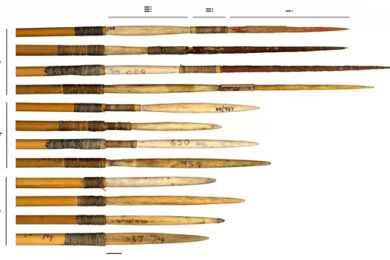It’s a terrible life being a music journalist. All the soul-sapping CDs that the post man insists on pushing through the letter box of your poorly furnished misery grotto every morning. Having to pretend you know who Gucci Mane is. Trying to think of things to say about free jazz. People just don’t understand the pressure.
That is why, at this time of year, we at the Quietus look forward to the chance to switch all this new fangled rubbish off and listen to some proper old music that was recorded in the halcyon days before we had to have an opinion on autotune and dubstep.
Time for us to switch off the rabid blackened ambient wobble step of Florence and the Machine and the horrortronix broken beats of Mumford and Son and kick back for a nice relaxing listening session featuring DAF, Loop, Godflesh and Omar Souleyman.
As per usual, this list is entirely arbitrary and chosen entirely by Luke and John. Thanks, as always to the fine pizza makers of Chuch Street, Il Baccio Express, who give us the fuel to make this enterprise possible. (Or sell it to us at a reasonable price at least.)
Read 40 – 21 of our reissues, comps and mixes list here.
20. Black Sabbath Master Of Reality

Their third, Master Of Reality, was released next summer in 1971, and the fact that in the meantime they’d become quite popular didn’t seem to mean much to Vertigo, given that this album in some respects sounds like it was recorded in a shed. In fact Sabbath were ushered into the studio to start recording on January 1st; this dour and dreaded day had not yet been declared a bank holiday in the UK and they were obviously not deemed important enough to be granted it as a day of rest. But the lo-fi sound suits the bong-loaded ‘Sweet Leaf’, the band’s instructional list of the pros and cons of weed smoking, leaned on to great effect by the Butthole Surfers for ‘Sweat Loaf’ at the end of the 80s. It was at this point that Tony Iommi started down-tuning his guitar to make it easier for him to play. Of course Butler had to follow suit and Ward chose to retune his kit and this naturally made the band sound even heavier and sludgier. This effect is audible on tracks such as ‘Children Of The Grave’ and ‘Into The Void’, the former of which revisited the band’s tendency to use the ‘devil’s chord’, or tri-tone, which prior to Sabbath would have been more likely to crop up in classical music or on the soundtrack to a Hammer bloodbath than in pop or rock. John Doran
19. Nick Cave & Warren Ellis – White Lunar
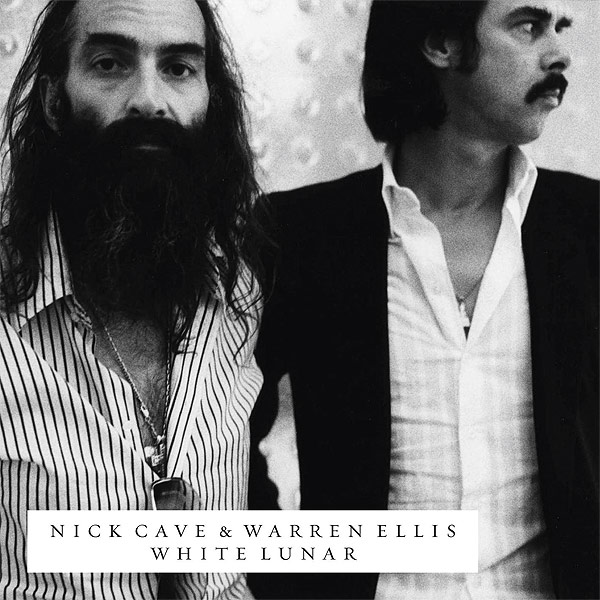
Nick Cave and Warren Ellis’ creative partnership has flourished over the past few years, what with the ball-tearingly brilliant Grinderman and 2008’s Bad Seeds belter Dig, Lazarus Dig!!!. In parallel to this the pair have been in demand as writers of soundtracks, starting with John Hillcoat’s baking Proposition and heading forth to the same director’s forthcoming adaptation of Cormac McCarthy’s The Road. White Lunar collects these soundtracks, along with various pieces written for documentaries, over two CDs. This at times might make the collection lack cohesion, but the way that the pair have taken elements of their work in the band format and extrapolated them to evoke and explore the visual against the constraints of the film world is never less than fascinating, and at times is evidence of a musical union that continues to grow. Luke Turner
Full Warren Ellis interview on The Quietus next month
18. Sleep Sleep’s Holy Mountain
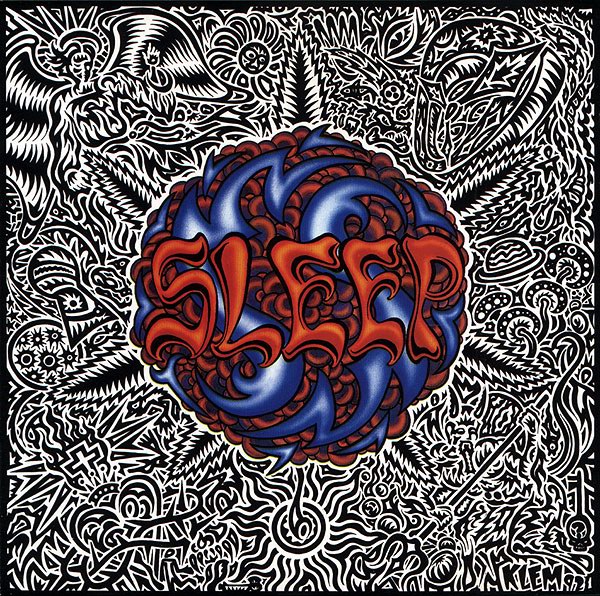
"This is sinuous, deep and rich — never mind the performance being billed as a rendition of Holy Mountain, for this is more than a trip down memory lane, or an exploration of past glories. It’s pure, incredibly powerful metal with a terrific groove at its core, offering as good an opportunity for a dance as we’ve had all weekend. What’s more, the three members of Sleep seem to be thoroughly enjoying themselves, and there’s rumour of new material being aired . . . it wouldn’t be surprising if there were more of this stygian sonambulance to come in the future." Luke Turner, reviewing Holy Mountain live
17. Billy Childish Archive From 1959
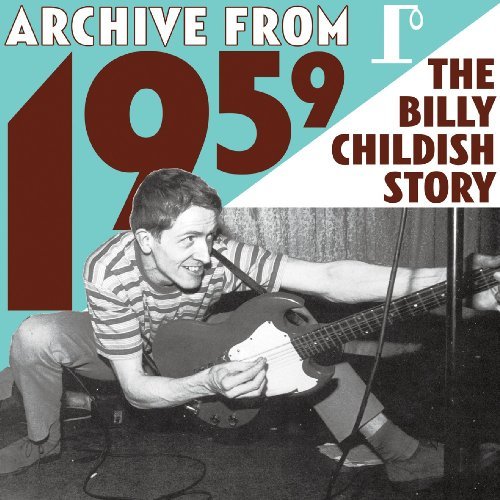
"Born in 1959 in Chatham, Kent, Childish never really left his home town but instead set about turning his life into a work of art. Aside from painting, wood cutting, poetry, literature and other esoteric pursuits, he pours most of his (seemingly boundless) energy into music. This too, fits into the fabric of everything he does and is repetitive, brutal, primitavist, truthful, moving, funny and sometimes mind blowing. He has recorded under too many names to recount and has made more records than anyone can remember but some of the best tracks are on this anthology." John Doran
Billy is a regular guest on The Quietus/Diesel U-Music radio show. We wish him and his family a happy holiday period and look forward to speaking to him again in 2010.
16. Devil’s Anvil Hard Rock From The Middle East
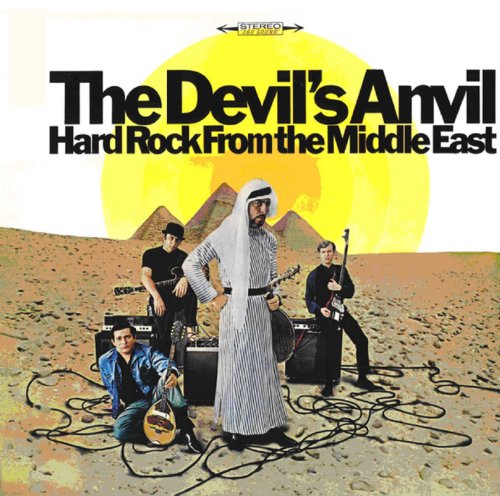
"This is by no means the only record that I’ve bought on the strength of the cover alone but it’s certainly one of the best. The picture shows a serious looking Arabic man wearing keffiyeh and robes, clutching an oud, surrounded by three rock & rollers and a selection of amps and guitars. In the disatance are the Pyramids of Giza. So imagine my disappointment when I found out that the group were actually all resident in Greenwich Village and not from Egypt at all! I had to admit that it didn’t stop this album from being one of my favourite psych rock finds of recent years." John Doran
15. Various Artists Disco Discharge: Hi NRG & Gay

Read Alan Jones’ Disco Discharge essay here

Quietus Editors John and Luke welcoming news of the Disco Discharge series, earlier in the year.
14. DAF Das Beste Von DAF
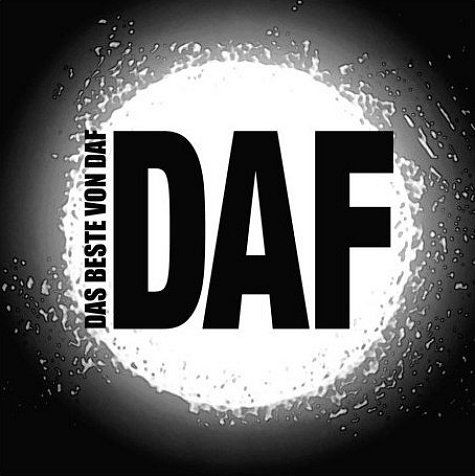
"Hearing ‘Der Mussolini’ in 1981 was an utter revelation as precise, pumping beats collided with lyrics that made a connection between fascism, religion and dance music ("Do the Mussolini! Do the Jesus Christ! Do the Adolf Hitler!"). Its power to fascinate and repel in equal measure remains undiminished, but it’s impossible not to overstate its impact in a period of the cultural and political shifts that are still being felt to this very day. They called it subversion. Others called it wrong." Julian Marszalek
13. Bauhaus Mask

Beggars have gone the extra mile with their series of Omnibus Edition reissues of their 80s back catalogue, of which Bauhaus are the first installment. Their re-releases of In The Flat Field and Mask come presented in large boxes complete with extensive sleeve notes, photographs of the half-naked cadaverous coves in their pants, and carefully selected musical extras across three CDs, including a live recording from the Hammersmith Palais in 1981. It’s be shame if these Omnibus Editions were picked up only by the original fanbase, for they showcase a band unfavourably treated by posterity – ‘Of Lilies And Remains’ is a pre-Raphealite Metal Box outtake, and throughout Mask sees Bauhaus attempting to expand on the overdriven gloom of their debut. Though you might want to skip the Bauhaus take on ‘Ziggy Stardust’, the Omnibus Edition of Mask is yet another argument for a reappraisal of goth – especially if you want to send me death threats for arguing that ‘Kick In The Eye 2’ and ‘In Fear Of Fear’ have a hint of the DFA about them. Luke Turner
12. The Pixies Minotour

"Their themes were a perversion of, or a skewed take on, the basic human needs for sex, shelter, food, warmth and intoxication. Frank Black once said that the popular perception of him as a David Lynch freak was pretty much true but that he had cooled toward the director as he’d gotten weirder and weirder and his once complex and non-judgmental attitude toward human sexuality had solidified into something that looked depressingly close to misogyny. This was reflected in the lyrics to songs such as ‘Bone Machine’ which had little to do with the vapid sexism of hair metal and the coy sexlessness of indie sucking its thumb under the twin monoliths of political correctness and AIDS panic. Sexual paranoia wrestling with dimly remembered sexual abuse was not what we were used to getting from Guns N’Roses or The Wedding Present: “I was talking to preachy-preach about kissy-kiss / He bought me a soda / He bought me a soda / He bought me a soda and he tried to molest me in the parking lot.” Again, these lines, delivered in a sing song childlike voice are the things that chill you to the marrow long after the noise has subsided." John Doran
Read The Pixies And The Language Of Violence here
11. Omar Souleyman Highway To Hassake

"In the beginning, my monetary state was very tired. But then in 1994 to 1996 it started coming in. After that, and in the last two years I have become famous. From 1994 to 2000 I was popular in the shops, but then in 2000 I made a video clip, and the Arab world started to notice. I’ve made five or six videos that are now on the TV. I sing clean lyrics, and words that affect people. When I sing sad songs, the people feel it. When I sing happy songs, the people feel happy. Even my stance on the stage is different from other musicians. I don’t like to move, I don’t dance. I don’t go down off the stage. During a wedding, the people make a circle, holding hands. I stand in the middle, but I don’t dance, my words and the music makes people dance . . . We’re all very original, but everyone copies us – we don’t copy anyone. We always want something new." Omar Souleyman
Read our full Omar Souleyman interview here
10. World Domination Enterprises – Let’s Play Domination
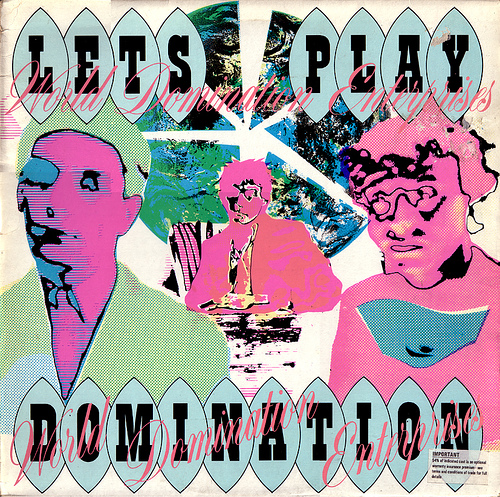
"The album was launched with a respectful trashing of LL Cool J’s ‘I Can’t Live Without My Radio’, bass strings — when they weren’t growling craterous dub — scratched instead of vinyl, Metters’ drumming precision-tooled, Dobson’s invective delivered with venom. It was no wonder that Public Image Ltd allegedly had them thrown off the bill at their Kilburn National performance a few months earlier: they made PiL seem tame in comparison. (Dobson also recalls a Husker Dü support where “our sound was quite literally sabotaged at the mixing desk.”) But the track only hinted at the barbarity contained within the rest of the album. On ‘Trouble Enough’ Dobson spits relentless spleen and bile, ‘Jah Jah Call You’ takes the band’s love of dub and spins wiry guitar lines over thunderous bass and drums, and on ‘Ragamuffin Man’ Dobson sounds like he’s in the process of being strangled. And then there’s ‘Funkytown’, a terrifying reinvention of Lipps Inc’s pop hit that sees it dragged kicking and screaming into a Ladbroke Grove basement and given the beating of its life while its cheesy keyboard line is replaced by what sound like out-of-tune steel drums. But the track betrays the sense of comedy and love of pop behind the band’s fury, something that was often lost amid the philosophising about their sound." Wyndham Wallace
Read our full World Domination Enterprises interview here
9. Spiritualized Ladies And Gentlemen We Are Floating In Space

"We were sat on a mountain doing a show with Nick Cave in Australia, and it was six and a half thousand feet up so people were getting kind of woozy and dizzy. But it was beautiful, and we played the show up the last tiny bit of the slope, and the last 100 metres was where the audience were with this beautiful mountain range and sky behind. We sat up all night and the people who run ATP gently leaned on me to do one of these shows and somewhere in the middle of the next afternoon they asked if I would consider doing Ladies and Gentlemen, and I said ‘OK, OK’ – almost so I could just get some sleep. And then on the back of that, Sony said ‘Well, let’s release the record’ – put it out again and do the pill packs and stuff. So, there you go. That’s the longer story [of why it got reissued]." Jason Pierce
Read our full Jason Pierce interview here
8. Saint Etienne – So Tough
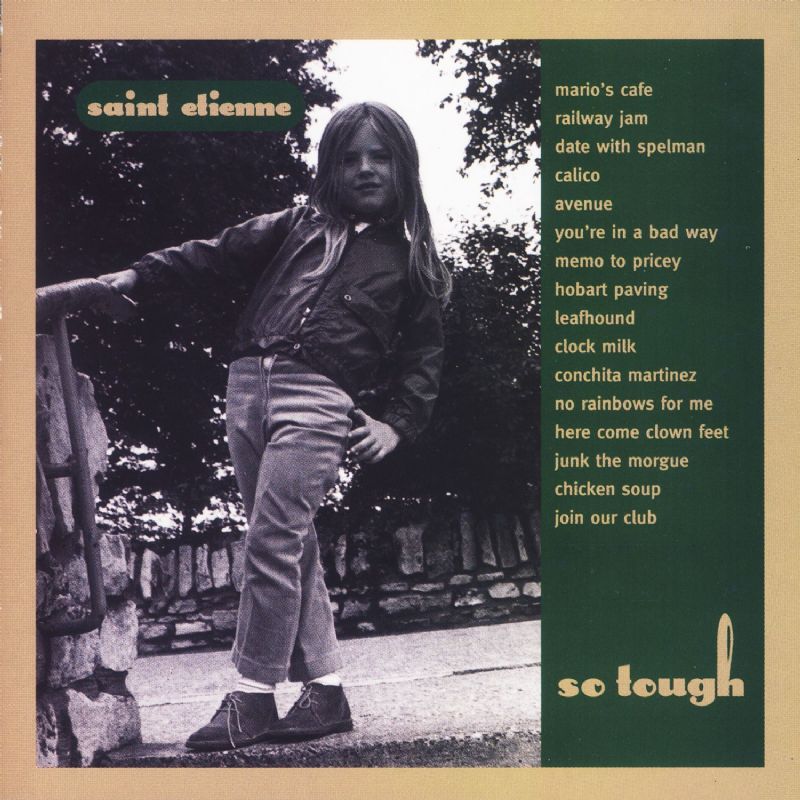
"On first listen, So Tough sounds bright-eyed, dreamy-hearted and pea-coated, just as I was when I first fell in love with the capital. But listen deeper. It’s a strangely ghostly record, a wispy maze of English memories that probably plays even more poignantly now than it did then — it being a relic in itself, sixteen years on, after all. Also, as a comment on British culture, So Tough take its cues from The Smiths, looking at those changing years between the 50s and 60s — scattering extracts of British film dialogue throughout the record, just like Morrissey used to with literary references in his lyrics. Crucially, however, it is not held down by the past. So Tough also shimmers with the sensations of 1993, from the perspective of a pop-lover who reads both Smash Hits and the NME. In ‘Mario’s Cafe’, daisy age flutes carry lines about the KLF and Prince Bee from PM Dawn, while ‘Conchita Martinez’ namechecks that year’s female tennis No. 1, while mixing the rhythms of techno, thick, grungy guitars, and the glamorous glitter of early 90s house." Jude Rogers
7. Leonard Cohen – Live In London

"Unworldy, spiritual, warming, assuredly human. There must be few events on earth quite like a Leonard Cohen show and within the pantheon of rock, I suggest, absolutely nothing is hovering nearby. Cohen is a unique, beautiful captivating spirit and, even if the peppering of shows in the UK last year were assembled to arrest his apparently shakey fiscal situation…well, so be it. At Glastonbury he shone like a beacon amid the mud of lesser artists. In London and Manchester, where I caught his last show on British soil, he performed with a shockingly cheerful manner, skipping across the stage, flirting openly with his backing singers, the extraordinary Webb sisters, and playing jovially with the inglorious nature of the ageing process. The central song in all this was the still magnificent ‘Tower of Song’, where the lyric lays down the process of his own immortality: "I was born like this, I had no choice, I was born with the gift or a golden voice," he intones before a barrage of cheers." Mick Middles
6. Nick Cave and the Bad Seeds From Her To Eternity
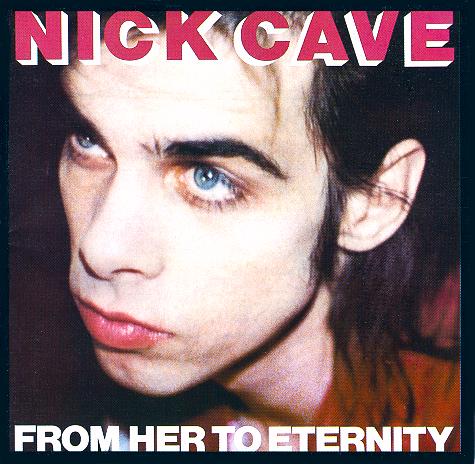
"The band showed immense restraint, creating acres of space between a clicking snare, the occasional baroque organ flourish and the creaking scrape of sweaty guitar strings. Cave swelled to fill this space like a recently summoned demon. He was the man of many voices. He crooned, wailed, warbled, wheedled, pleaded, hectored, admonished, raved, spluttered and shouted. His true offspring isn’t Gerard Way or some other emo sheep in goth wolf’s clothing but in fact Li’l Wayne. Cave is Old Jeezy. Old Wheezy. Musically, the record was bordering on avant garde. Experimental. Unhinged. And it still sounds new now. The title track and ‘Saint Huck’ are demented; fragments of jazz, punk and the blues heard while the listener is sweat slick, convulsing with the DTs and ‘A Box For Black Paul’ is a sinister funeral dirge dedicated to the victim of a lynching (or in reality, to his old group, The Birthday Party)." John Doran
5. Loop A Gilded Eternity
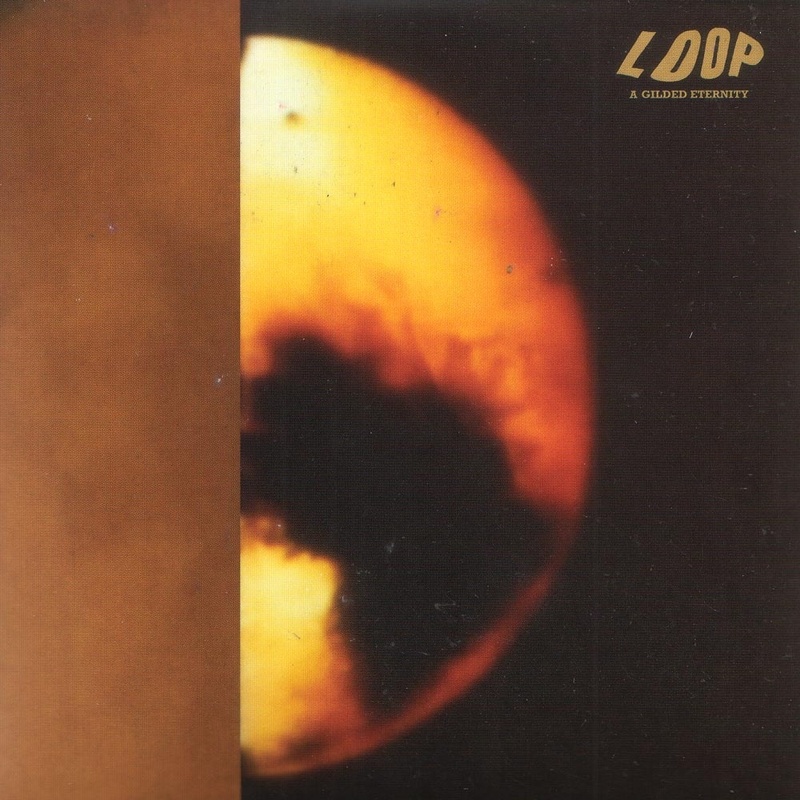
"Despite early comparisons to Spacemen 3, the Loop that delivered the push-and-pull of ‘Vapour’ were as far removed from their Rugby contemporaries as Sonic and Jason themselves were about to become. A Gilded Eternity was a collection of hypnotic mantras, tracks that used repetition deliberately and methodically to induce a trance-like state. The epic ‘Be Here Now’ is a typical case: built around a circling, swooping riff, its build-up is both subtle and jarring, coming on with all the stealth and power of an unexpurgated LSD trip." Julian Marszalek
4. The Units History Of The Units

"The Units were punks, of a sort, but not from the Sid Thunders tabloid-fodder mould. They did Art Things with bohemian pride, for example playing inside a SF department store in the daytime as part of a window display-cum-installation. The band were a fixture of Dirk Dirksen’s boundary-free punk bills at SF’s Mabuhay Gardens venue in the late 70s, when other likely locals included the Dead Kennedys, Negative Trend and The Zeros – Dirksen, who died in 2006, would be delighted that the opening track on History Of The Units is a recording of him, in his MC role, insulting the crowd before accidentally-on-purpose introducing The Units as The Zeros." Noel Gardner
3. Gary Numan Pleasure Principle
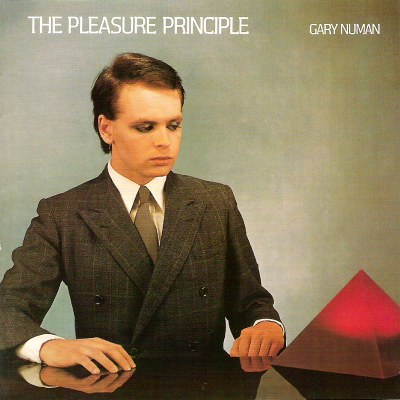
"I knew there were other people out there doing [synth pop]. So there were people who were already doing it who were going to be coming through people like Human League, Ultravox and OMD and also there were going to be newer bands doing it for the first time because it was now this massive, successful new music kind of thing. But the real reason for the lack of guitars on Pleasure Principle was to do with a reaction to what the press had been saying. They had been really hostile up until that point saying that it wasn’t proper music blah blah blah. So at the time I was trying to prove a point; that you could have an album without guitars and still have it sound powerful." Gary Numan
Read our interview with Gary Numan here
2. Kraftwerk Catalogue Remasters
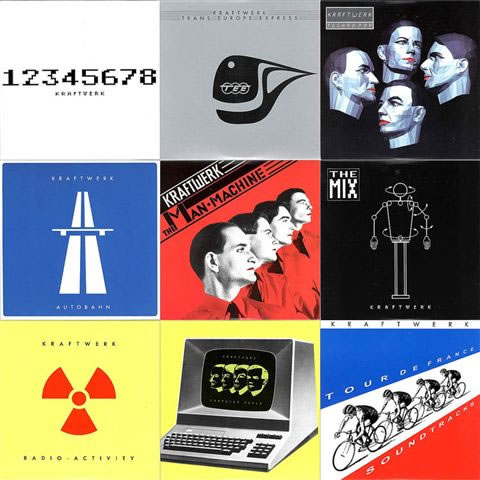
"The first time I heard Kraftwerk it was like a scorch of hot metal, a bolt of white light to the mind. I was 16, an indie girl from an industrial town, an unlikely target for machine music made by four men from Düsseldorf. Chris, my best friend and partner-in-crime in small-town escapism, had come round as usual on a damp Friday night, with four cans of Fosters that would go straight to our heads, and some dusty CDs he had bought with his pocket money. Usually we’d listen to Teenage Fanclub, Blur, or some dull, cut-price grunge, but this album looked different. An indigo-blue and luminous yellow cover; a monochrome robot with wild, widening eyes; a title, The Mix, set in Ceefax-style building blocks. I was scared of it, somehow, genuinely puzzled by its strangeness. And then its first track whirred, sputtered, shot into life, filling the corners of my mum’s old front room – a dark hole full of bibles and commemorative plates to old collieries – with something bright, clear, and incredibly modern. It sharpened the room’s old-fashioned edges; it set my synapses alight. And slowly but surely, Kraftwerk became mine." Jude Rogers
1. Various Artists Ghana Special
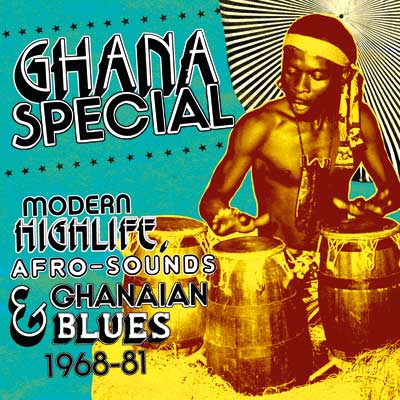
"Ghana has always had one of the world’s strongest, and most vibrant musical cultures. As a cornerstone of Paul Gilroy’s ‘Black Atlantic’, this West African nation, the first to achieve independence from (British) colonial rule, has also, for several hundred years now, acted as a kind of geographic synthesizer: filtering, multiplying and recombining cultural forms from across Africa, Europe and the Americas. In the twentieth century, with the rise of highlife music – itself a syncretic combination of West African rhythms, Liberian guitar playing, pan-African folk melodies, European brass bands, and later, soul, funk and rock & roll – it is no exaggeration to refer to Ghana as a laboratory of future pop music. Although highlife had already spread from Ghana across West Africa as early as the 1920s, and had reached something of a ‘golden age’ amidst the utopian spirit of the period immediately following the end of British colonial rule in 1957, the tracks on the new Sound Way Records compilation, Ghana Special, originate from somewhat later – documenting the sound of economic collapse and political instability. The earliest track here represented, ‘Odo Mmera’ by Pa Steele’s African Brothers, a song that anticipates The Smiths in both its wanton melancholy ("I’m lonely and I’m feeling down, if my lover comes to my bed everything will be alright") and its spidery guitar line, was recorded just two years after the CIA-backed military coup that brought the optimistic post-national liberation years to an end." Robert Barry
The List
============
- Various Artists Ghana Special
- Kraftwerk Cataologue Remasters
- Gary Numan Pleasure Principle
- The Units History Of The Units
- Loop A Gilded Eternity
- Nick Cave and the Bad Seeds From Her To Eternity
- Leonard Cohen – Live In London
- Saint Etienne – So Tough
- Spiritualized Ladies And Gentlemen We Are Floating In Space
- World Domination Enterprises – Let’s Play Domination
- Omar Souleyman Highway To Hassake
- The Pixies Minatour
- Bauhaus Mask Omnibus
- DAF Das Beste Von DAF
- Various Artists Disco Discharge: Hi NRG & Gay
- Devil’s Anvil Hard Rock From The Middle East
- Billy Childish Archive From 1959
- Sleep Sleep’s Holy Mountain
- Nick Cave & Warren Ellis White Lunar
- Black Sabbath Master Of Reality
- Various Artists Fly Girls
- Godflesh Pure/Slave State/Cold World
- Amorphous Androgynous A Monstrous Psychedelic Bubble Exploding In Your Mind Vol 2 – Pagan Love Vibrations
- Mulatu Astatke New York Addis London: The Story Of Ethio Jazz 1965 – 1975
- Various Artists Hyperdub Five
- Spacemen 3 A Perfect Prescription
- Various Artists Sci Fi Lo Fi: Shoegazing 1985 – 2007
- The Raincoats The Raincoats
- Various Artists Freedom, Rhythm And Sound
- Cold Cave Cremations
- Moondog More Moondog
- Def Leppard Adrenalyze
- Erasure Total Pop! Erasure’s First 40 Hits
- Laibach Let It Be
- Various Artists Forge Your Own Chains: Psychedelic Ballads and Dirges 1968-1974
- Venom Black Metal
- Jean-Pierre Massiera Midnight Massiera
- The Slits Cut
- 23 Skidoo Urban Gamelan
- Wicked Witch Chaos 1978 – 1986


